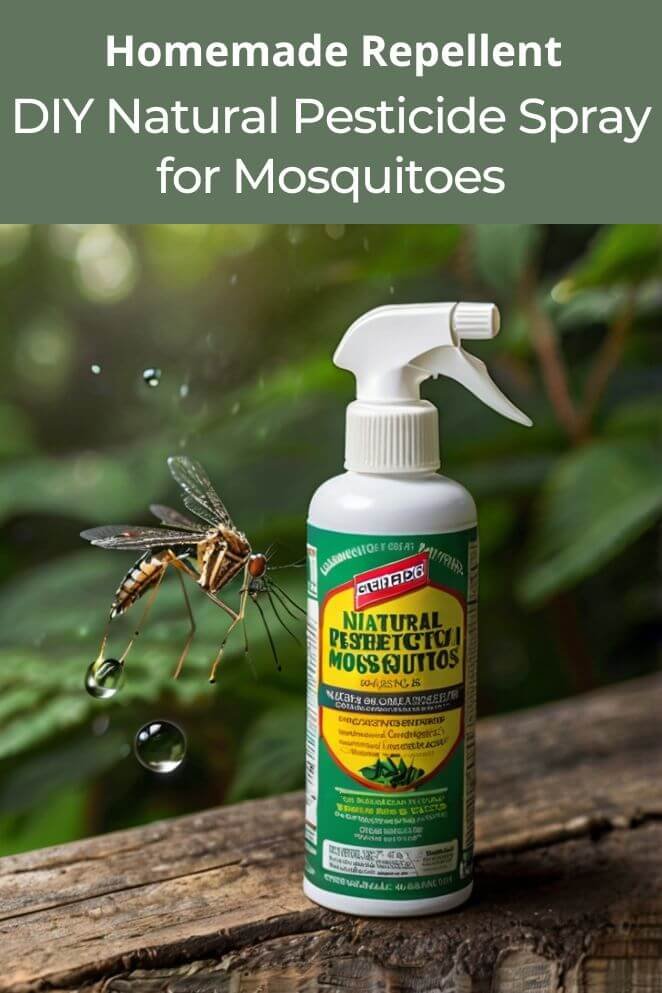
Mosquitoes thrive in warm, humid environments and are most active during dawn and dusk.
While it’s important to protect yourself and your family from mosquito bites, many store-bought repellents contain DEET and other chemicals that can cause skin irritation and other health issues.
Fortunately, there are natural alternatives that are both effective and safe.
Creating your own DIY natural pesticide spray for mosquitoes is easy, cost-effective, and allows you to control what goes into the product you’re using.
Ingredients
The key to an effective natural mosquito repellent lies in the ingredients.
Essential oils are a popular choice due to their strong scents, which mosquitoes find unpleasant.
Here’s what you’ll need:
- Essential oils: Citronella, eucalyptus, lavender, and tea tree oils are all known for their mosquito-repelling properties.
- Carrier oil: Coconut oil or olive oil can be used to dilute the essential oils and help them adhere to the skin.
- Witch hazel: Acts as an astringent and helps to preserve the spray.
- Apple cider vinegar: Adds another layer of protection with its strong scent.
- Distilled water: To dilute the mixture and make it easy to spray.
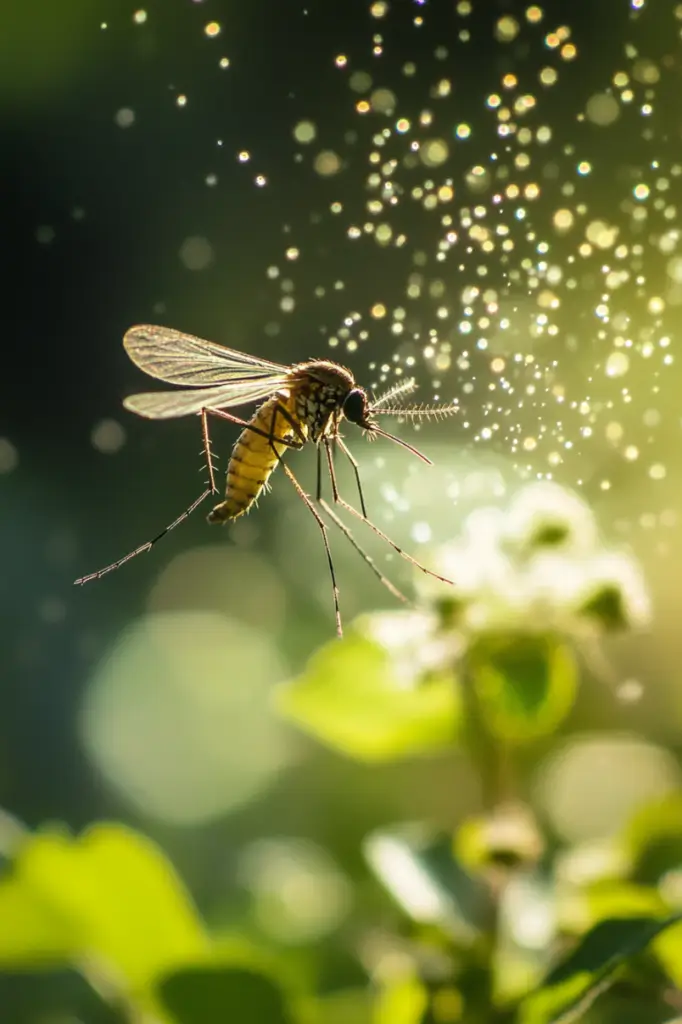
Instructions
Gather your ingredients
Start by gathering everything you need: a clean spray bottle, a small funnel, measuring spoons, and the following ingredients: essential oils, carrier oil, witch hazel, apple cider vinegar, and distilled water.
- Read also: DIY Insecticidal Soap Spray: Protect Your Plants Without Harsh Chemicals
- Read also: Crafting Your Defense: Effective DIY Traps for Garden Pests
Mix the essential oils
In a small bowl, blend the essential oils.
You’ll need 10 drops each of citronella oil, eucalyptus oil, and lavender oil, plus 5 drops of tea tree oil.
These oils are known for their bug-repelling properties.
Add the carrier oil
To ensure the essential oils are safe for skin application, add 2 tablespoons of a carrier oil like coconut oil or olive oil to the bowl.
The carrier oil helps dilute the essential oils and makes the mixture gentle on your skin.
Combine the other ingredients
Next, mix in 1/4 cup of witch hazel and 1/4 cup of apple cider vinegar.
These ingredients act as natural preservatives and help the spray adhere to surfaces.
Dilute with distilled water
Add 1/2 cup of distilled water to the mixture. Stir well to combine all the ingredients thoroughly.
The water helps to dilute the mixture, making it easy to spray.
Transfer to spray bottle
Using the funnel, carefully pour the mixture into a clean spray bottle.
Make sure to shake the bottle well before each use to ensure the ingredients are properly mixed.
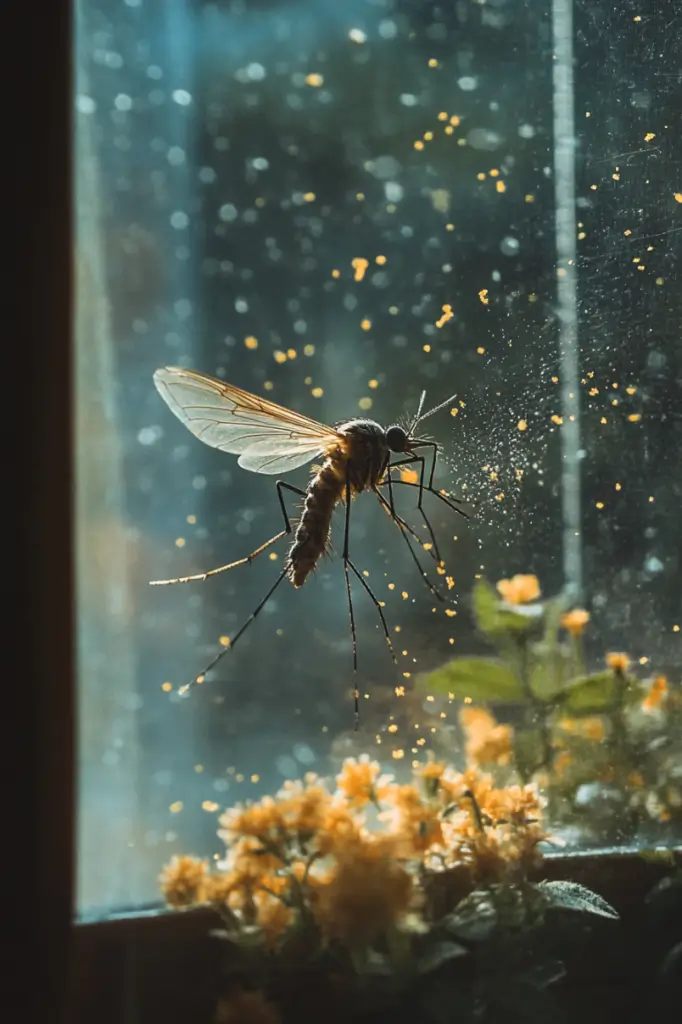
Application Tips
Test for allergies
Before applying the spray to your skin, it’s important to check for any allergic reactions.
Apply a small amount of the spray to a small patch of skin, like on your wrist or behind your ear.
Wait for 24 hours to see if there’s any redness, itching, or irritation.
This will help ensure that the spray is safe for you to use.
Apply generously
When you’re ready to use the spray, apply it generously to all exposed skin, such as your arms, legs, and neck.
You can also spray it on your clothing and outdoor furniture to help keep mosquitoes away. Be thorough to ensure maximum protection.
Reapply as needed
Natural bug repellents may not last as long as chemical ones, so you’ll need to reapply the spray more frequently.
Generally, you should reapply every couple of hours, especially if you’re sweating heavily or swimming.
This will help maintain its effectiveness throughout the day.
Avoid sensitive areas
Be careful not to spray the mixture near your eyes, mouth, or any open wounds.
The essential oils might irritate these sensitive areas, so it’s best to keep the spray away from them.
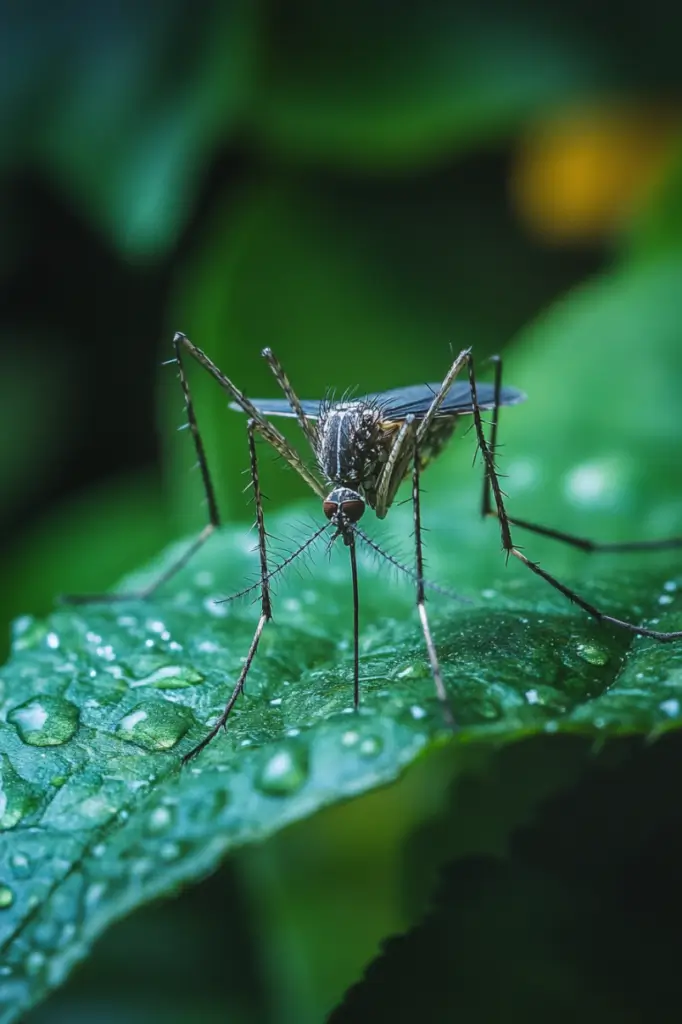
Safety Considerations
While natural mosquito repellents are generally safer than chemical ones, there are still some precautions to keep in mind:
Essential oil sensitivity
Even though natural repellents are often safer than chemical ones, it’s important to be aware of essential oil sensitivities.
Some people might have reactions to certain essential oils, such as irritation or allergic responses.
To avoid this, always test the spray on a small patch of skin before using it more broadly.
This will help you determine if the repellent is safe for you.
Child safety
When using essential oils around young children, extra caution is needed.
Essential oils can be potent and might not be suitable for very young kids.
It’s a good idea to further dilute the mixture if you’re applying it to children and to consult with a pediatrician if you’re unsure.
This ensures that the repellent is safe and appropriate for their delicate skin.
Pet safety
Certain essential oils can be harmful to pets, so it’s important to keep the spray away from them.
Pets may react adversely to the oils, leading to potential health issues.
To ensure your pets’ safety, avoid applying the spray where they might come into contact with it.
If you have any concerns or questions about using essential oils around pets, consult with a veterinarian.
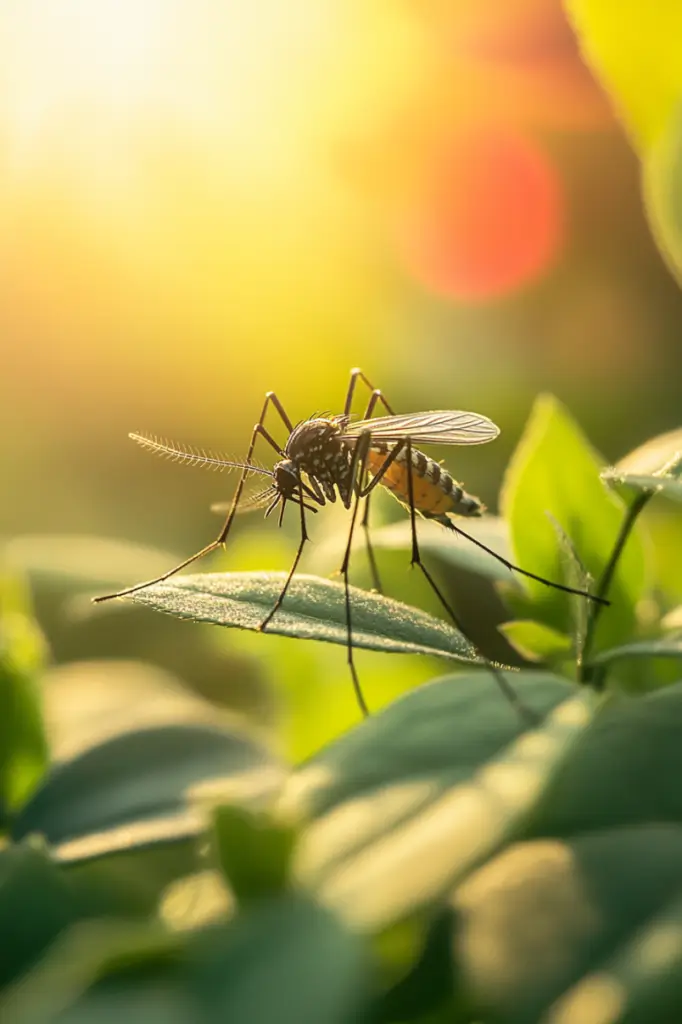
- Read also: DIY Plant Humidifier: Simple Solutions for Healthy Indoor Greenery
- Read also: Keeping Your Plants Safe: A DIY Guide to Spider Mite Spray
Conclusion
Creating your own DIY natural pesticide spray for mosquitoes is a simple and effective way to protect yourself and your loved ones from mosquito bites without exposing them to harmful chemicals.
With just a few ingredients and a little bit of time, you can make a safe, eco-friendly repellent that works just as well as commercial products.
FAQs
Natural repellents tend to wear off faster than chemical ones. It’s recommended to reapply every 2-3 hours, especially if you are sweating or swimming.
Yes, other essential oils like peppermint, lemongrass, and cedarwood also have mosquito-repelling properties. You can experiment with different combinations to find what works best for you.
While natural repellents are generally safer, some essential oils can cause skin irritation in young children. Always perform a patch test and consider diluting the mixture further.
Yes, you can use the spray indoors, but be mindful of the strong scent, which might be overwhelming in enclosed spaces. It’s best used outdoors or in well-ventilated areas.



